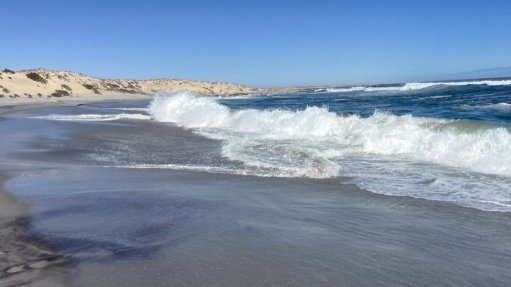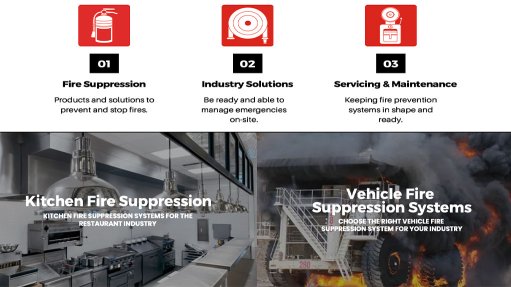Resettlement programme under way as LHWP Phase II progresses
As construction of the second phase of the Lesotho Highlands Water Project (LHWP) progresses, several socioeconomic programmes are under way to mitigate the impact of the physical and economic displacement that comes with such large infrastructure projects.
One of these programmes, informed by studies conducted during the project’s planning phase, is a resettlement programme that addresses the involuntary relocation of communities affected by the construction of the Polihali dam.
The implementing agency, the Lesotho Highlands Development Authority (LHDA), has been working closely with the affected households and community structures to develop a comprehensive resettlement programme for Phase II of the project, the authority says in a statement to Engineering News & Mining Weekly.
“This programme addresses the effects of physical and economic displacement by incorporating compensation, relocation and livelihood restoration, which are critical aspects of ensuring community wellbeing.”
Work on the first resettlement housing construction contract for LHWP Phase II officially started on January 13.
This followed the awarding, in October 2024, of a R372.8-million contract to the Sixty 15 joint venture (JV), which comprises three Lesotho-based companies: Motjetjepa Investments, trading as Eagle Construction; Afro-Asia Engineering; and Geo Construction.
The contract entails the construction of a church, a community hall, a chief’s office and at least 64 houses at the Tloha re Bue and Ha Ramonakalali resettlement sites in Malingoaneng for households relocating from Tloha re Bue, Masakong and Ha Tlhakola.
Additionally, a roads and water reticulation network will be developed at Makalong to support households relocated from Lits’otsong.
The contract has been structured to maximise local participation, with subcontracting and material supply packages designed for local businesses in areas such as construction, security, transport, material supplies and catering services.
The resettlement planning process has been collaborative, from identifying affected households and verifying assets to approving compensation offers and ensuring transparent community involvement in decision-making, says Polihali dam basin resettlement planning and implementation consultant Lima-Thaha JV (LTJV) resettlement manager Mpaleng Oliphant, noting that the resettlement process has been structured to prioritise community input and choices.
LTJV has been engaging communities since 2017, with consultations including focus groups, public gatherings, household discussions and meetings with community representatives, councillors and chiefs.
“Communities affected by relocation and inundation have had the opportunity to influence resettlement site selection, housing designs, village layouts and compensation preferences.”
The new relocation sites have been carefully designed to provide modern amenities while preserving cultural traditions, with key features including planned village layouts with streets and essential infrastructure, water reticulation with potable water supplied through community standpipes, solar panels for each household, fenced yards, vegetable gardens and water tanks.
Traditional housing options, such as rondavels and mokhoro (traditional huts for fireplaces), that accommodate cultural preferences are available.
For those opting to remain in Masakong, the village will be upgraded with new roads, water reticulation and solar energy.
Meanwhile, other affected families are choosing to relocate to different areas, acquiring land within or outside the project area.
Construction of replacement houses started in January 2022. To date, nine houses have been built in Checheng, Mapholaneng, Makokoaneng, Ha Sekila, Phakoeng, Ha Poli (Leribe) for households affected by the Polihali north-east access road and Polihali western access corridor developments.
Additionally, in 2023, nine households in Liphofung were relocated owing to the transfer tunnel quarry in Leribe.
The four-household village of Lits’otsong was also relocated to Makalong in Mokhotlong last year.
It is estimated that 11 700 assets will be affected by LHWP Phase II, with 270 households and 21 business structures having been identified for relocation.
Over 570 graves have been relocated from access road sites and the site establishment area, while additional grave relocations for sites affected by the reservoir are scheduled for the coming months.
“As LHWP Phase II progresses, resettlement and compensation remain central to ensuring the wellbeing of affected communities. The compensation and resettlement process is progressive, unfolding alongside project developments. Compensation payments continue for affected assets, ensuring all affected households receive fair compensation and support,” the LHDA says.
Article Enquiry
Email Article
Save Article
Feedback
To advertise email advertising@creamermedia.co.za or click here
Press Office
Announcements
What's On
Subscribe to improve your user experience...
Option 1 (equivalent of R125 a month):
Receive a weekly copy of Creamer Media's Engineering News & Mining Weekly magazine
(print copy for those in South Africa and e-magazine for those outside of South Africa)
Receive daily email newsletters
Access to full search results
Access archive of magazine back copies
Access to Projects in Progress
Access to ONE Research Report of your choice in PDF format
Option 2 (equivalent of R375 a month):
All benefits from Option 1
PLUS
Access to Creamer Media's Research Channel Africa for ALL Research Reports, in PDF format, on various industrial and mining sectors
including Electricity; Water; Energy Transition; Hydrogen; Roads, Rail and Ports; Coal; Gold; Platinum; Battery Metals; etc.
Already a subscriber?
Forgotten your password?
Receive weekly copy of Creamer Media's Engineering News & Mining Weekly magazine (print copy for those in South Africa and e-magazine for those outside of South Africa)
➕
Recieve daily email newsletters
➕
Access to full search results
➕
Access archive of magazine back copies
➕
Access to Projects in Progress
➕
Access to ONE Research Report of your choice in PDF format
RESEARCH CHANNEL AFRICA
R4500 (equivalent of R375 a month)
SUBSCRIBEAll benefits from Option 1
➕
Access to Creamer Media's Research Channel Africa for ALL Research Reports on various industrial and mining sectors, in PDF format, including on:
Electricity
➕
Water
➕
Energy Transition
➕
Hydrogen
➕
Roads, Rail and Ports
➕
Coal
➕
Gold
➕
Platinum
➕
Battery Metals
➕
etc.
Receive all benefits from Option 1 or Option 2 delivered to numerous people at your company
➕
Multiple User names and Passwords for simultaneous log-ins
➕
Intranet integration access to all in your organisation

















